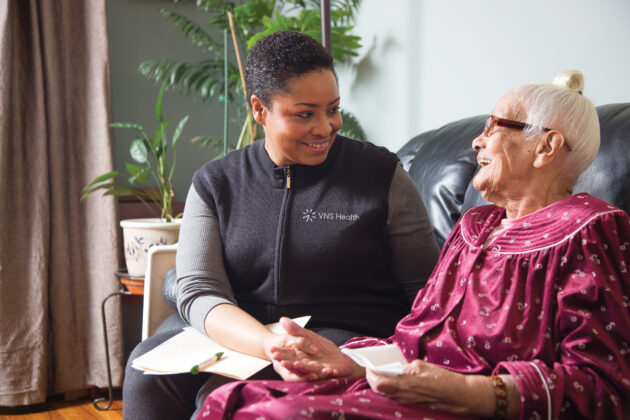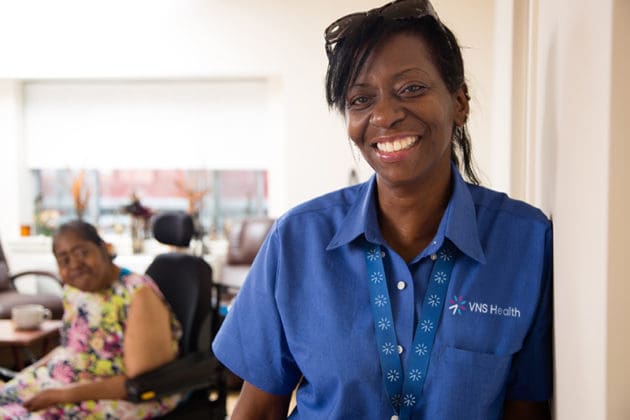
You know your aging parent or loved one would benefit from home care, but they keep coming up with reasons why it won’t work. It may be time for a frank but loving discussion about what home care is and how it can help.
Here are some things parents and older loved ones might say, along with helpful responses you can use to guide your conversation about why home care is right for them.
Your Parent Doesn’t Understand Home Care
Start by talking about what home care entails. Home care can mean a few different things. It can be care after an illness or injury, such as surgery or a heart attack. In this case, it’s prescribed by a doctor or other health care provider. Think of it like medication — your provider orders it because it’s necessary for recovery. This type of home care usually includes:
- Nursing care, such as monitoring of feeding tubes and wound care
- Rehab therapy, such as physical, occupational, speech, and stroke therapy
- Personal care, such as help with bathing and dressing, as you recover
Home care can also describe in-home help that isn’t related to an illness or injury. This type of home care is usually long-term and includes:
- Personal care, such as help with bathing and dressing
- Help with everyday tasks, such as preparing foods
- Senior care
- Companionship
Both types of home care share the same goal: To promote safety and allow patients to stay in their own homes.
Have questions about in-home care or need support navigating tough conversations about care?
Your Parent Says They Don’t Need Help
Many people are used to doing things on their own. When they no longer can, it can be hard. Remind your parent that needing help due to aging, injury, or surgery is completely normal.
Prepare for a conversation with your loved one by getting information from your loved one’s health care providers. For instance, you may want to know how well they move around, how sharp their mind is, and what kind of medical care they need. Their providers may also be able to discuss what the future will look like on the basis of their current health status.
Lastly, discuss the risks of not getting support. For example, not getting home care could lead to a need for more services because of injuries or worsening symptoms.
Your Parent Doesn’t Want to Be a Burden
Parents are often used to being caregivers. As a result, they might be wary of home care because of the need to switch into the role of being cared for. They may want to avoid worrying or burdening loved ones.
Talk to your parent about how home care actually reduces your worry. Home care ensures that your parent is safe and getting the right kind of care, which you or other family members are often unable to provide.
Money may also be a concern. Discuss how home care is paid for, such as through Medicare, Medicaid, private health insurance, private pay, and benefits for veterans.
You can also assign specific tasks to one or more family members to ease the burden. For instance, one person can work with insurance companies, and another can talk with care teams.
Your Parent Doesn’t Want People to Know
Health is often a private matter, and your parent might want to keep it that way. For instance, they might worry about neighbors or other loved ones seeing an aide at their house. This could invite prying or questions about your loved one’s health.
Make a plan that avoids these issues. Tell a few trusted neighbors about your loved one’s health, but ask them to keep details private. You can also come up with ways to talk about your loved one’s situation, including what they are willing to share and what they want to keep private.
Finally, remind your loved one that people’s questions often come from a place of love and caring.
Your Parent Refuses Home Care
People have many reasons for avoiding any medical care. They may have been treated disrespectfully in the past, or felt ignored or discriminated against. These are valid reasons. Listen to your parent’s concerns.
You can also reassure them that VNS Health team members receive ongoing training in cultural sensitivity. Your loved one will be treated respectfully.
If your parent has health care providers they’ve grown to trust, remind them that they will of course still see them for medical care.
Finally, when decisions need to be made, remember that your parent has final say (unless safety is at risk). Try to arrive at a solution that everyone is on board with. As things evolve, keep communication lines open. Don’t shut down concerns, and always be willing to hear your loved one out. Remind your parent that you are always in their corner. No matter what, you want what’s best for them and your family, now and in the future.


